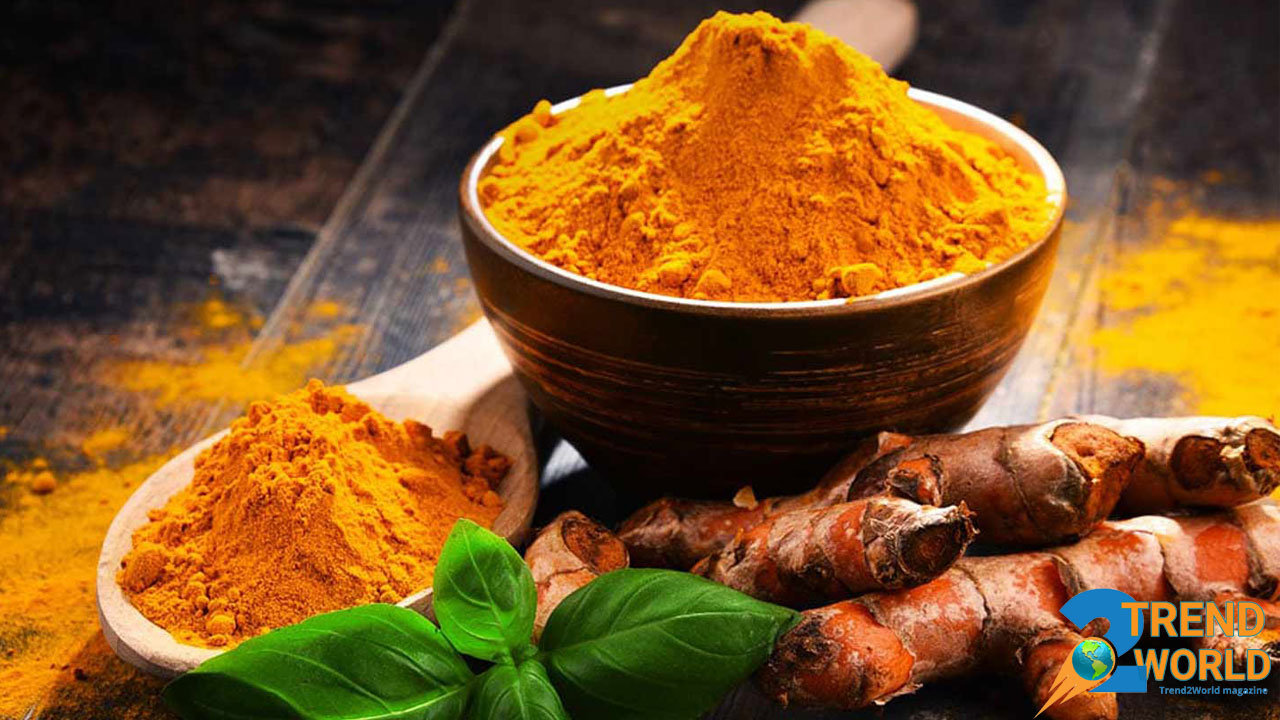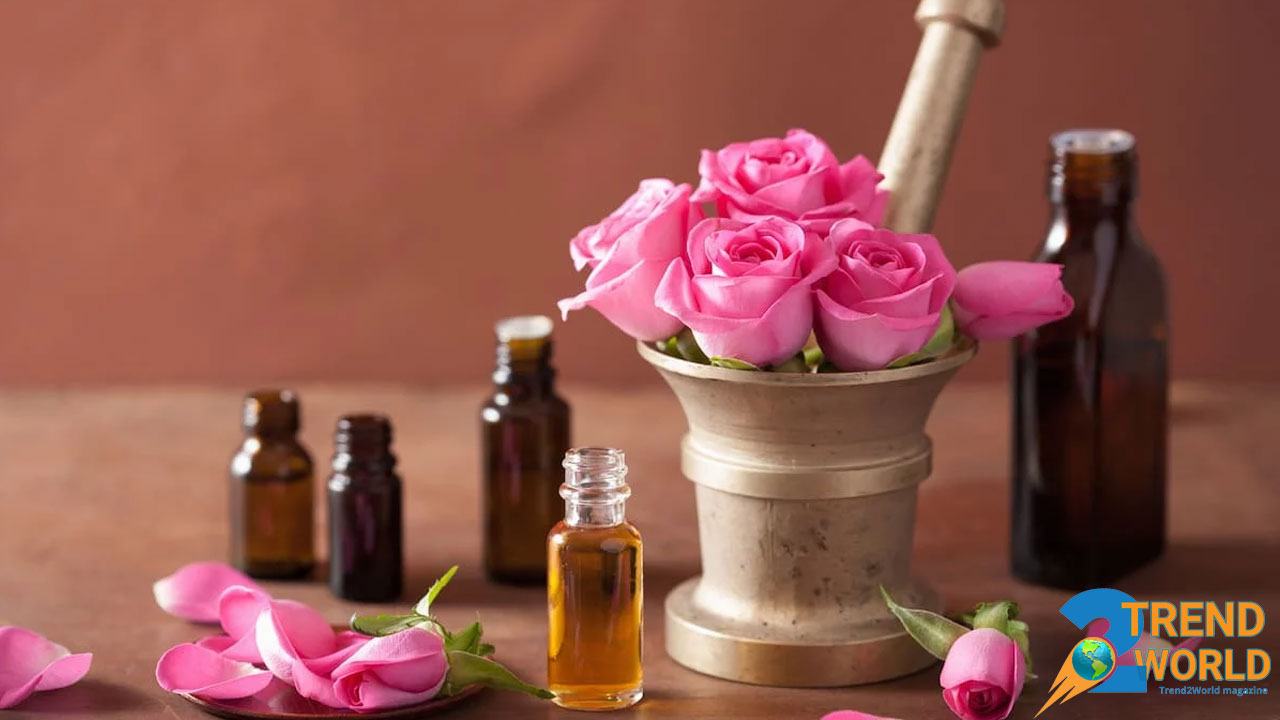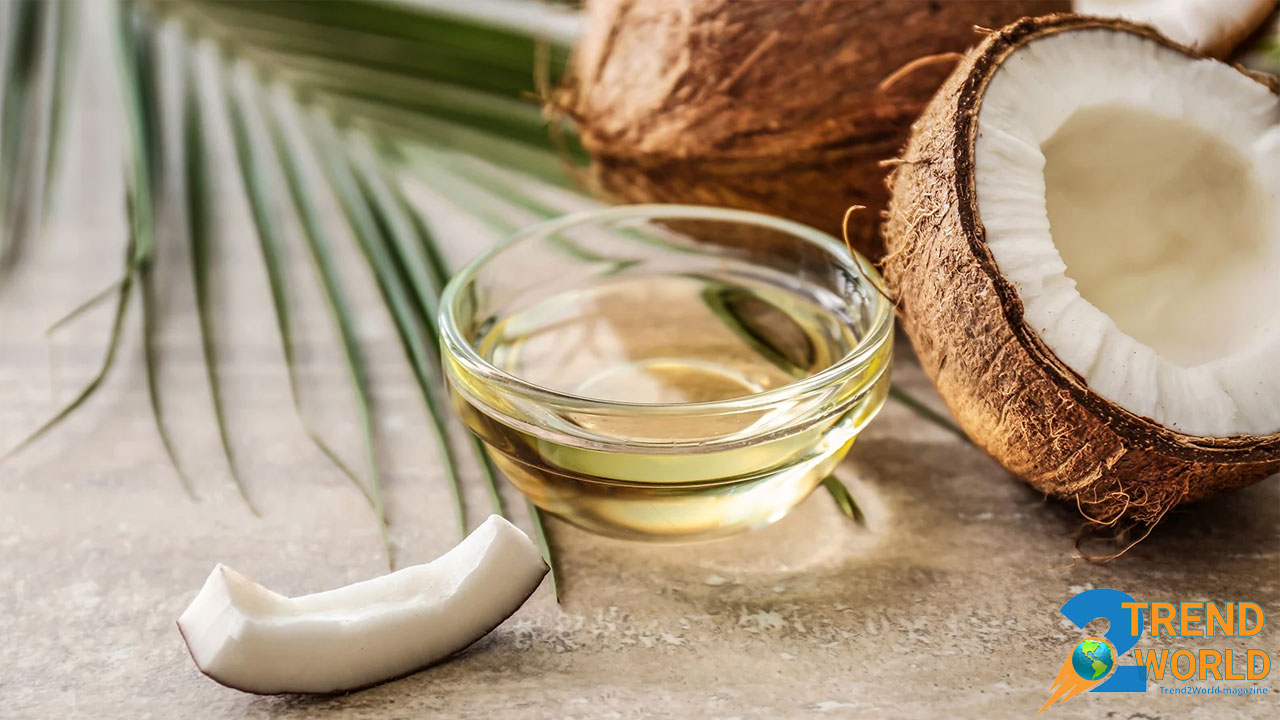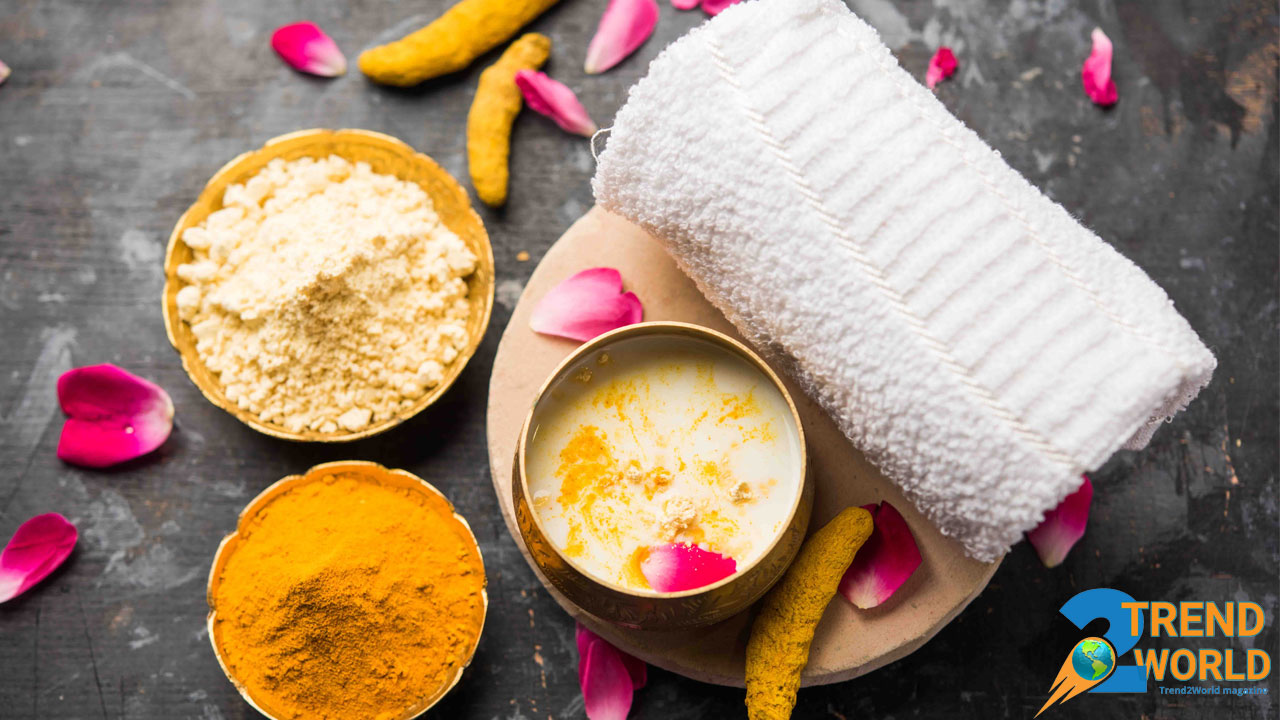The Importance of Healthy Skin
Natural Ingredients for Glowing Skin , Glowing and healthy skin is one of the signs of beauty and overall well-being. Many people turn to expensive and chemical-based products to maintain their skin’s radiance and freshness. However, nature has provided us with valuable resources that can effectively enhance natural beauty without any side effects. Using natural ingredients not only nourishes and hydrates the skin but also helps prevent issues such as dryness, inflammation, acne, and dark spots.
🍃 Natural Ingredients for Skincare
In many households, there are valuable natural ingredients that can be used for skincare. From hydration and brightening to reducing inflammation and evening out skin tone, these ingredients can be applied in various ways. Some, like honey 🍯 and aloe vera 🌿, have antibacterial properties, while others, such as turmeric 🌟 and lemon 🍋, help fade dark spots. Choosing the right ingredients and using them consistently can have a significant impact on the health and beauty of your skin.
💧 Benefits of Homemade Remedies
In this article, we introduce seven natural ingredients that are easily available at home and can be used to achieve glowing skin ✨. These homemade remedies are not only cost-effective 💰 but also work with pure and natural compounds, improving and strengthening the skin without causing harm.
Honey 🍯:

Honey is one of the oldest and most trusted natural substances that has been used for skin care since ancient times. In addition to its sweet taste, this natural substance has amazing properties for the skin, helping to improve its appearance and health. Due to its antibacterial and anti-inflammatory characteristics, honey is recognized as an effective treatment for many skin issues.
Boosting Collagen and Rejuvenating Skin:
Honey helps stimulate collagen production in the skin. Collagen is a protein that maintains skin’s strength and elasticity. By increasing collagen levels, honey can help reduce wrinkles and rejuvenate the skin.
Reducing Puffiness and Dark Circles Under the Eyes:
Thanks to its anti-inflammatory and moisturizing properties, honey can help reduce puffiness and dark circles. Simply apply a small amount of honey to the under-eye area and leave it on for 10 to 15 minutes before rinsing it off.
Fighting Premature Aging:
Honey is rich in antioxidants, which help fight free radicals, the primary cause of premature skin aging. Its antioxidant properties make honey effective in reducing fine lines and wrinkles.
Treating Acne and Pimples:
Honey has antibacterial properties that reduce inflammation caused by acne. It also helps speed up the healing of acne scars and blemishes. Additionally, honey helps clear pores, preventing new breakouts.
Healing Damaged Skin and Wounds:
Honey has natural healing properties that assist in the repair of wounds and skin damage. It’s especially effective for treating minor burns, cuts, and small abrasions.
Protecting Skin from Pollution and UV Damage:
Due to antioxidants like flavonoids, honey protects the skin from environmental damage caused by pollution and harmful UV rays. This can help prevent sun damage and reduce signs of aging.
Controlling Oil Production:
Honey regulates oil production, making it great for oily and combination skin. It can help prevent breakouts by controlling excess oil.
Cleansing and Detoxifying Skin:
Honey acts as a natural cleanser, removing dirt, pollution, and toxins from the skin. When combined with ingredients like rose water or yogurt, it penetrates deep into the skin to cleanse and detoxify.
Moisturizing and Firming Skin:
Honey’s nourishing and moisturizing qualities help soften and firm the skin. Using honey-based masks will leave the skin feeling tighter and more refreshed over time.
Reducing Dryness and Itchiness:
Honey helps soothe dry, itchy skin thanks to its moisturizing properties. It’s especially beneficial for dry or sensitive skin types.
Honey Skin Care Recipes:
-
Honey and Olive Oil Mask:
Combine honey with olive oil to deeply moisturize the skin. This mask is perfect for dry or sensitive skin.
-
Honey and Cinnamon Mask:
If you have acne-prone skin, try mixing honey and cinnamon. This combination reduces pimples and inflammation due to cinnamon’s antibacterial properties.
-
Honey and Sugar Scrub:
Create a natural exfoliator by mixing honey with sugar. This scrub helps remove dead skin cells, leaving your skin smooth and glowing.
Extra Tips:
- Since honey is sticky, use it sparingly on your skin. You can also mix it with other natural ingredients for better results.
- Honey is generally suitable for most skin types, but if you have sensitive or allergic skin, it’s best to do a patch test before applying it to your face.
Aloe Vera 🌿:

Aloe Vera is one of the miraculous and highly popular plants that has been used for centuries to treat various skin and hair problems. gel contains specific chemical compounds that are incredibly beneficial for the skin. With its moisturizing, anti-inflammatory, healing, and antibacterial properties, this plant has become a natural and effective remedy for various skin issues.
Aloe Vera Benefits for Skin:
💧 Deep Hydration
Aloe Vera is a natural moisturizer that can deeply hydrate the skin. This gel contains 90% water 💦, which makes it quickly absorb into the skin and keep it soft and hydrated. This feature makes Aloe Vera an excellent choice for dry and dehydrated skin.
🩹 Skin Healing
Aloe Vera helps repair and regenerate damaged skin tissues. It has anti-inflammatory and healing properties that can speed up the recovery process of wounds, burns, and small cuts. It also helps reduce acne scars and marks caused by injuries.
🌿 Reduces Inflammation and Redness
Due to its anti-inflammatory and cooling properties 🧊, Aloe Vera can reduce skin inflammation and redness. This makes it an excellent treatment for skin conditions like eczema, rosacea, and inflamed acne.
🚫 Anti-Acne and Anti-Pimple
Aloe Vera, due to its antibacterial and anti-inflammatory properties, helps fight bacteria 🦠 and reduce inflammation caused by acne. Applying Aloe Vera gel directly on pimples can help reduce their size and inflammation and prevent new breakouts.
🛡️ Protection Against Environmental Damage
Aloe Vera has antioxidant properties 🧴 that protect the skin from free radical damage, air pollution 🌫️, and UV rays 🌞. This helps reduce the speed of skin aging and provides protection from environmental damage.
✨ Skin Brightening
Aloe Vera contains brightening compounds that can help eliminate spots, dark areas, and surface pollution from the skin. Regular use of Aloe Vera can increase the clarity and brightness of your skin.
👁️🗨️ Reduces Puffiness and Dark Circles Around Eyes
Aloe Vera is known as a natural remedy to reduce puffiness and dark circles under the eyes. Its moisturizing and anti-inflammatory properties help alleviate tired skin around the eyes, leaving it fresh and vibrant.
🔬 Gentle Exfoliation
Aloe Vera, containing natural enzymes 🍃, can help gently exfoliate the skin. These enzymes remove dead skin cells and give the skin a chance to regenerate and renew itself.
⏳ Prevents Premature Aging
Aloe Vera is rich in vitamins A, C, and E 🍊, which protect the skin from UV damage and free radicals. This helps reduce fine lines and wrinkles and slows down the skin aging process.
💆♀️ Suitable for Sensitive Skin
Aloe Vera, with its softening and soothing properties, is ideal for sensitive skin. This plant can calm and soothe sensitive skin without causing irritation.
How to Use Aloe Vera for Skin:
Pure Aloe Vera Gel
To use Aloe Vera, simply cut open an Aloe Vera leaf and extract the gel inside. Apply this gel directly on the skin and leave it on for 15 to 20 minutes ⏱️. Then rinse off with lukewarm water.
Aloe Vera and Honey Mask
For extra hydration 💧 and to reduce skin inflammation, mix Aloe Vera gel with some natural honey 🍯 and apply it to your face. This combination helps nourish the skin and keeps it soft.
Aloe Vera and Olive Oil Mask
If you have dry skin, you can combine Aloe Vera with olive oil 🫒. This mask offers deep moisturizing properties and is ideal for repairing dry and damaged skin.
Aloe Vera and Rose Water Toner
For daily use, you can mix Aloe Vera with rose water 🌹 and use it as a natural toner to clean your skin. This combination helps calm and refresh your skin.
Aloe Vera and Lemon Mask
If you’re looking to brighten your skin 🌟, you can mix Aloe Vera with a few drops of lemon juice 🍋 and apply it to your skin. This mask helps make your skin look clearer and more radiant.
Important Tips When Using Aloe Vera:
Patch Test
Before using Aloe Vera gel, perform a patch test 🩺 on a small area of your skin to ensure there is no allergic reaction.
Use Fresh Aloe Vera
For best results, use fresh and natural Aloe Vera 🌱. If you can’t use the fresh plant, choose Aloe Vera products available in the market that contain high-quality Aloe Vera.
Oral Consumption
Some people also consume Aloe Vera orally 🥤 for better digestive function and skin health. However, you should avoid excessive consumption and consult a medical professional for guidance on oral use.
Conclusion:
Aloe Vera is an amazing plant 🌿 that, with its diverse properties, can help treat and enhance skin health. This natural plant, with its hydrating, anti-inflammatory, healing, and antibacterial properties, is one of the best choices for skincare. Regular use of Aloe Vera can help reduce skin issues, improve clarity and softness, and slow down the signs of aging.
Yogurt 🥛:

Yogurt is a natural and popular substance widely used in skincare and beauty. This dairy product contains vitamins, proteins, and amino acids, which have exceptional benefits for nourishing and improving the skin. Besides being used in cooking, yogurt is known as a home remedy for various skin issues.
Benefits of Yogurt for Skin:
💧 Hydration and Moisturization
Yogurt contains water and natural fats that help hydrate and moisturize the skin. This makes it act as a natural moisturizer, keeping the skin soft and smooth. This property is especially beneficial for dry and sensitive skin.
✨ Gentle Exfoliation
Yogurt contains lactic acid, which is an alpha hydroxy acid (AHA) that helps gently exfoliate the skin. This acid aids in breaking down dead skin cells, making the skin appear brighter and more transparent. Exfoliating with yogurt helps the skin naturally renew and rejuvenate.
🛑 Reduces Inflammation and Redness
Yogurt has anti-inflammatory properties that help reduce redness, inflammation, and skin irritations. If you have sensitive skin or suffer from conditions like eczema or rosacea, using yogurt can help soothe and calm the skin.
❌ Anti-Acne and Anti-Pimple
Yogurt, due to its antibacterial properties, can help reduce pimples and acne. By killing harmful bacteria and preventing skin infections, yogurt can help treat inflamed acne and prevent new breakouts.
🌟 Skin Brightening and Clarifying
The lactic acid in yogurt helps reduce dark spots, old pimples, and skin discoloration. This property makes yogurt an excellent treatment for achieving clear and even skin. Regular use of yogurt can make your skin look brighter and more radiant.
🔥 Soothing for Burns and Wounds
Thanks to its soothing properties, yogurt can be helpful in treating mild burns or small wounds. If your skin is sunburned, applying yogurt can reduce pain and irritation.
⏳ Reduces Wrinkles and Signs of Aging
Yogurt contains proteins and various vitamins that help strengthen the skin’s collagen. Collagen is a protein that keeps the skin firm and elastic. Regular use of yogurt can slow down the skin’s aging process and reduce fine lines and wrinkles.
⚖️ Controls Oily Skin
Yogurt can help control oil production and prevent oily pimples and clogged pores. This property is particularly useful for those with oily skin.
❄️ Prevents Dry Skin
As a natural moisturizer, yogurt can prevent dry skin and keep it soft and hydrated. This is essential for dry and sensitive skin types.
💪 Strengthens Skin Texture
With the proteins it contains, yogurt helps strengthen and rebuild the skin’s texture. Using yogurt can enhance the skin’s firmness and health.
How to Use Yogurt for Skin:
🧴 Simple Yogurt Mask
To use yogurt as a moisturizer and hydrator, simply apply some plain yogurt to your face and leave it on for 15 to 20 minutes. Then, rinse your face with lukewarm water. This mask helps nourish and soften the skin.
🍯 Yogurt and Honey Mask
To reduce inflammation and hydrate more, you can mix yogurt with some natural honey and apply it to your face. Honey has antibacterial properties, and when combined with yogurt, it helps treat acne and pimples.
🍋 Yogurt and Lemon Mask
For brighter skin and to reduce dark spots, you can mix yogurt with a few drops of lemon juice. Lemon has brightening properties, and this combination helps enhance skin clarity and brightness.
🧂 Yogurt and Sugar Scrub
For gentle exfoliation, mix yogurt with sugar and apply it in circular motions on your skin. This scrub helps remove dead skin cells and improves skin texture.
🌿 Yogurt and Turmeric Mask
Turmeric has anti-inflammatory and antiseptic properties. The combination of yogurt and turmeric can help reduce inflammation and treat pimples. This mask is highly beneficial for acne-prone skin.
Our recommended product for you to have the best yoga experience – click on the image below!
 Trending Home! Our top fitness, health, and yoga picks are flying off the shelves—don’t miss out!
Trending Home! Our top fitness, health, and yoga picks are flying off the shelves—don’t miss out!
 Grab yours before it’s too late!
Grab yours before it’s too late!
Important Tips When Using Yogurt for Skin:
🍽️ Use Plain Yogurt
For skin care, it is better to use plain, unsweetened yogurt without flavoring or additives. Flavored yogurts may contain chemicals and extra sugars that are not beneficial for the skin.
⚠️ Patch Test for Sensitivity
Before using yogurt for the first time, always perform a patch test on a small area of your skin to ensure there is no allergic reaction.
🔄 Regular Use
For the best results, regular use of yogurt is crucial. You can use these masks and home remedies two to three times a week.
Conclusion:
With its numerous benefits, yogurt can be a natural and effective treatment for various skin issues. From hydration and moisturizing to reducing inflammation, brightening the skin, and controlling oil, yogurt can enhance the health and beauty of your skin. By incorporating yogurt regularly into your skincare routine, you can achieve radiant, soft, and glowing skin. 🌟
Turmeric ✨:

Turmeric, this aromatic yellow spice, is widely used not only in cooking but also in home remedies. The medicinal properties of turmeric are due to its active compound called curcumin, which has anti-inflammatory, antioxidant, and antibacterial properties. This spice has been used for thousands of years in traditional Asian medicine, especially in India, to treat skin issues. Due to its remarkable properties, turmeric is one of the best natural ingredients for skincare.
Turmeric Benefits for Skin:
-
Anti-inflammatory and soothing for the skin:
Due to its anti-inflammatory properties, turmeric is highly beneficial for calming skin inflammations. This is especially effective for treating issues like acne, eczema, rosacea, and skin sensitivities. Turmeric can reduce redness and swelling caused by skin inflammations.
-
Brightening and evening skin tone:
Turmeric acts as a natural brightener and can help reduce spots, dark patches, and dullness of the skin. Regular use of turmeric can make the skin appear clearer and more even. This property is especially effective in treating sunspots, acne scars, and age-related pigmentation.
-
Acne and pimple reduction:
Turmeric, due to its antibacterial and anti-inflammatory properties, is one of the best treatments for acne and pimples. The curcumin in turmeric reduces bacterial activity and soothes inflammation, helping to reduce the size and number of pimples. It also helps in treating acne scars.
-
Strong antioxidant and fighting premature aging:
Turmeric has antioxidant properties that can protect the skin from damage caused by free radicals. This helps in reducing wrinkles and preventing premature aging of the skin. Regular use of turmeric aids in maintaining youthful and radiant skin.
-
Skin texture and tone improvement:
Turmeric helps strengthen and rebuild the skin’s texture, increasing firmness and elasticity. This feature is especially helpful in preventing skin sagging and laxity. Turmeric also helps remove dead skin cells, making the skin smoother and softer.
-
Reducing dark circles and puffiness under the eyes:
Turmeric can help reduce dark circles and puffiness under the eyes. Its anti-inflammatory and brightening properties help diminish dark circles and swelling around the eyes, making the skin look fresher and younger.
-
Treating burns and small wounds:
Turmeric has healing properties that can assist in treating mild burns and small wounds. Its antibacterial and anti-inflammatory effects prevent infection and inflammation in damaged areas, speeding up the healing process.
-
Fighting skin infections:
Turmeric has disinfectant and antibacterial properties that can prevent skin infections. This feature makes turmeric useful in treating fungal infections, wounds, and even skin conditions like dermatitis.
-
Relieving dry skin and providing hydration:
Turmeric’s moisturizing properties can help dry skin. It helps maintain the skin’s moisture and prevents dryness and cracking.
Methods to Use Turmeric for Skin:
-
Turmeric and honey mask:
For reducing inflammation and added hydration, you can mix turmeric with honey. Honey has antibacterial properties and, when combined with turmeric, helps treat pimples and acne. This mask soothes the skin and reduces inflammation.
-
-
How to use:
-
Mix 1 teaspoon of turmeric with 1 teaspoon of honey and apply it to your face. After 10-15 minutes, wash your face with lukewarm water.
-
Turmeric and yogurt mask:
Turmeric can be combined with yogurt. This mixture helps brighten the skin and reduce spots. Yogurt helps exfoliate and hydrate the skin, while turmeric has anti-inflammatory and antibacterial properties.
-
-
How to use:
-
Mix 1 teaspoon of turmeric with 1 tablespoon of yogurt and apply it to your skin. Leave it on for 10-15 minutes, then wash it off with lukewarm water.
-
Turmeric and olive oil mask:
If you have dry skin, you can combine turmeric with olive oil. Olive oil has moisturizing properties, and turmeric helps strengthen the skin. This mixture helps regenerate and soften the skin.
-
-
How to use:
-
Mix 1 teaspoon of turmeric with 1 teaspoon of olive oil and apply it to your face. After 15 minutes, wash your face with lukewarm water.
-
Turmeric and sugar scrub:
For exfoliating the skin, you can mix turmeric with sugar. This scrub helps remove dead skin cells and renew the skin.
-
-
How to use:
-
Mix 1 teaspoon of turmeric with 1 teaspoon of sugar and gently rub it on your skin. This scrub is especially effective for the face and body.
-
Turmeric and lemon mask:
To brighten the skin and treat dark spots, you can mix turmeric with lemon juice. Lemon has brightening properties, and turmeric helps fight bacteria and skin inflammation.
-
-
How to use:
-
Mix 1 teaspoon of turmeric with 1 teaspoon of lemon juice and apply it to your face. After 10-15 minutes, wash your face with lukewarm water.
Important Tips for Using Turmeric on Skin:
-
Patch test:
Before using turmeric, conduct a patch test, as it may cause allergic reactions in some individuals.
-
Use with caution:
Turmeric may stain the skin, so it is best to avoid using it on sensitive areas or to combine it with whitening agents like yogurt and honey.
-
Regular use:
For better results, it is recommended to use turmeric regularly, 2-3 times a week.
Conclusion:
With its remarkable properties, turmeric is a natural and effective ingredient for skincare. Its anti-inflammatory, antibacterial, brightening, and antioxidant properties make it effective in treating various skin issues such as acne, inflammation, wrinkles, and skin discoloration. Using turmeric in combination with other natural ingredients can help promote skin health, clarity, and beauty.
Rose 🌹:

🌹 Rosewater, known as one of the oldest and most popular natural ingredients in the world of beauty and skincare, is extracted from fresh rose petals and has been used in many cultures as a fragrant and therapeutic substance. Due to its anti-inflammatory, antiseptic, and moisturizing properties, rosewater has become one of the main components in skincare routines. In this article, we will explore the amazing benefits of rosewater for the skin and how to use it.
Benefits of Rosewater for the Skin:
💧 Hydration and Moisturization
Rosewater acts as a natural moisturizer. This magical liquid is easily absorbed by the skin and delivers the necessary moisture. Regular use of rosewater softens the skin and helps maintain its moisture, making it especially beneficial for dry and dehydrated skin. 🌱
🔥 Reducing Inflammation and Redness
Rosewater has anti-inflammatory properties that can help soothe inflamed and red skin. People with sensitive skin or conditions such as rosacea, eczema, or acne can use rosewater to calm and reduce redness and inflammation. ✨
⚖️ Balancing Skin pH
Rosewater helps balance the skin’s pH level. Proper pH balance is essential for maintaining skin health, as it strengthens the skin’s natural barrier and prevents issues like dryness, sensitivity, and breakouts. Rosewater helps maintain this natural balance. 🛡️
⏳ Fighting Premature Aging and Wrinkles
Rosewater contains antioxidants that can help reduce wrinkles and prevent premature aging. These antioxidants fight free radicals and prevent damage to skin cells. Thus, rosewater helps maintain the skin’s youthful appearance and freshness. 🌟
🌞 Reducing Dark Spots and Skin Discoloration
Rosewater has natural brightening properties that can help reduce dark spots and discoloration. This makes rosewater one of the best options for achieving bright and even-toned skin. 🌸
🌿 Soothing and Calming the Skin
Rosewater is known for its calming properties. Using rosewater on the skin can help reduce stress and tension, promoting a sense of relaxation and freshness. Its soothing nature helps treat sensitivities and skin irritations effectively. 🧘♀️
👁️ Reducing Puffiness and Dark Circles around the Eyes
Due to its anti-inflammatory and hydrating properties, rosewater can help reduce puffiness and dark circles around the eyes. This feature makes the skin around the eyes look brighter and more refreshed. 💧
🦠 Antiseptic and Antibacterial
Rosewater has antiseptic and antibacterial properties that can help cleanse the skin of impurities and harmful bacteria. These properties make rosewater an effective agent in preventing skin issues like pimples and acne, leaving the skin clean and healthy. 💪
🌿 Helping with Acne and Pimples
Due to its antibacterial nature, rosewater can be effective in treating acne and pimples. Using rosewater as a natural toner helps control excess oil and prevents clogged pores, aiding in the treatment and prevention of acne. ⚡
🩹 Healing Burns and Small Wounds
Rosewater, with its healing properties, can help treat mild burns, cuts, and superficial wounds. Applying rosewater in such cases accelerates the healing process and prevents infection. 🌱
How to Use Rosewater for the Skin:
Rosewater Toner
One of the simplest and most effective ways to use rosewater on the skin is by applying it as a toner. Rosewater toner can cleanse the skin, reduce pores, and help balance the skin’s pH level. Simply soak a cotton pad with rosewater and gently apply it to your face and neck. This can be done daily. 🌸
Rosewater and Honey Mask
Rosewater can be mixed with honey to combine the moisturizing and antibacterial benefits of both. This mask helps nourish the skin and treat acne. 🍯
How to Use:
Mix 1 tablespoon of honey with 2 tablespoons of rosewater and apply it to the face. After 15-20 minutes, wash your face with lukewarm water. 💧
Rosewater and Yogurt Mask
Mixing rosewater with yogurt is another effective homemade remedy for the skin. This mask helps reduce dark spots, brighten the skin, and prevent dryness. 🥣
How to Use:
Mix 2 tablespoons of yogurt with 1 tablespoon of rosewater and apply it to your face. After 15 minutes, wash your face with lukewarm water. 💦
Rosewater and Turmeric Mask
Combining rosewater with turmeric helps reduce inflammation and brightens the skin. Turmeric has antibacterial and anti-inflammatory properties, which, when combined with rosewater, help treat acne and pimples. 🌿
How to Use:
Mix 1 teaspoon of turmeric with 2 tablespoons of rosewater and apply it to your face. After 10-15 minutes, wash your face. 🧖♀️
Rosewater Spray
For a quicker and easier way to use rosewater, you can use it as a spray. Fill a spray bottle with rosewater and use it throughout the day whenever your skin needs hydration or a refreshing boost. 💧
Rosewater for Makeup Removal
Rosewater acts as a natural cleanser and can be used to remove makeup, especially light makeup. To do this, simply soak a cotton pad with rosewater and gently wipe it over your face. 💄
Important Tips When Using Rosewater for the Skin:
🌸 Use Natural Rosewater:
For the best results, it is recommended to use pure, natural rosewater that does not contain any added chemicals.
🌿 Sensitivity Test:
Before using rosewater for the first time, it’s important to do a patch test on a small area of your skin to ensure you don’t have any allergic reactions.
🧴 Consistent Use:
For optimal results, regular use of rosewater is recommended. You can incorporate rosewater as a toner or spray into your daily skincare routine.
Conclusion:
Due to its therapeutic and calming properties, rosewater is one of the best natural ingredients for skincare. Not only does it moisturize the skin, but it also reduces inflammation, brightens, treats acne, and combats premature aging. Regular use of rosewater can help keep your skin vibrant, refreshed, and healthy. 🌹
Coconut oil 🥥:

Coconut oil is one of the most popular and widely used vegetable oils, known for its amazing benefits for the skin, hair, and overall health. This natural oil is extracted from dried coconut meat and is extensively used in the cosmetic and healthcare industries due to its moisturizing, antibacterial, anti-inflammatory, and nutritional properties. Coconut oil is not only beneficial for skin and hair but is also recognized as a natural remedy for many health issues.
Benefits of Coconut Oil for Skin:
🌿 Natural Moisturizer:
Coconut oil is an excellent moisturizer that can penetrate deeply into the skin, providing it with the necessary hydration. This makes it one of the best options for dry and dehydrated skin, keeping the skin soft, smooth, and radiant.
🛑 Anti-inflammatory and Soothing:
Coconut oil has anti-inflammatory properties that can help soothe skin inflammation, reduce redness, and alleviate skin sensitivities. This makes it useful for individuals with conditions like eczema, rosacea, or psoriasis.
🦠 Antibacterial and Antiseptic:
Coconut oil contains natural compounds like lauric acid, which have antibacterial and antiseptic properties. This makes coconut oil one of the best choices for combating acne. Using it can help cleanse the skin of bacteria and prevent infections.
⏳ Anti-aging and Wrinkle Reduction:
Coconut oil is rich in antioxidants, which can help reduce wrinkles and prevent premature skin aging. These antioxidants fight free radicals, preventing damage to skin cells and helping to maintain youthful and vibrant skin.
🔥 Helps Treat Burns and Small Wounds:
Due to its healing properties, coconut oil can aid in the treatment of mild burns, cuts, and superficial wounds. Its antibacterial properties also prevent infections from these wounds and speed up the healing process.
👁️ Reduces Puffiness and Dark Circles:
Coconut oil can help reduce puffiness and dark circles around the eyes. Its moisturizing and anti-inflammatory properties penetrate the skin around the eyes, reducing swelling and brightening this area.
💥 Helps Treat Acne and Pimples:
One of the key benefits of coconut oil is its antibacterial properties, which can help reduce acne and pimples. Especially for individuals with severe acne, using coconut oil can help cleanse the skin of bacteria and soothe the inflammation caused by pimples.
✨ Skin Brightening and Nourishing:
Coconut oil can make the skin appear brighter and softer. This benefit comes from its saturated fatty acids, which nourish and strengthen the skin.
💪 Treatment for Stretch Marks:
Due to its moisturizing and healing properties, coconut oil can be effective in treating stretch marks caused by pregnancy or weight loss. Regular use can help repair and improve the appearance of these marks.
💋 Helps with Dry Lips:
Coconut oil can treat dry and chapped lips. Its moisturizing properties help keep the lips soft and hydrated, preventing dryness.
How to Use Coconut Oil for Skin:
💧 As a Moisturizer:
To use coconut oil as a moisturizer, simply rub a small amount of oil between your hands and apply it to your face or body. This works especially well after bathing or washing your face to lock in moisture.
🍯 Coconut Oil and Honey Mask:
A mixture of coconut oil and honey can help soothe dry and sensitive skin. Honey acts as a natural moisturizer while coconut oil has antibacterial and anti-inflammatory properties.
How to use:
Mix 1 tablespoon of coconut oil with 1 tablespoon of honey and apply it to your face. After 20 minutes, rinse your face with lukewarm water.
🌿 Coconut Oil and Turmeric Mask:
The combination of coconut oil and turmeric can reduce inflammation and brighten the skin. This mask is especially useful for those with acne or pimples.
How to use:
Mix 1 teaspoon of turmeric with 2 teaspoons of coconut oil and apply it to your face. After 15 minutes, wash your face with lukewarm water.
🍬 Coconut Oil and Sugar Scrub:
For exfoliating the skin, mix coconut oil with sugar. This scrub helps remove dead skin cells and softens the skin.
How to use:
Mix 2 tablespoons of sugar with 2 tablespoons of coconut oil and gently massage it onto your skin. After a few minutes, wash it off with lukewarm water.
🌹 Coconut Oil and Rose Water Spray:
To moisturize your face throughout the day, use a coconut oil and rose water spray. This spray nourishes the skin, keeping it soft and hydrated.
How to use:
Mix some coconut oil with rose water in a spray bottle and gently spray it onto your face.
💥 Coconut Oil for Acne Treatment:
To treat acne and pimples, apply coconut oil directly to the affected areas. Its antibacterial properties help the pimples heal faster and promote healthier skin.
Important Tips When Using Coconut Oil for Skin:
🌱 Choose Organic and Pure Coconut Oil:
For the full benefits of coconut oil, it’s best to use organic, unrefined coconut oil without chemical additives.
🧪 Patch Test:
Before applying coconut oil to your face or body, conduct a patch test. Apply a small amount of the oil on a small area of skin and wait 24 hours to ensure there is no allergic reaction.
⚖️ Use in Moderation:
Despite its many benefits, it’s important to use coconut oil in moderation. Overuse can clog pores and lead to breakouts, especially for oily skin types.
Conclusion:
Coconut oil, with its moisturizing, anti-inflammatory, antibacterial, and anti-aging properties, has become one of the most popular and beneficial natural oils for skin care. Using this oil can help maintain skin hydration, reduce inflammation, treat acne and pimples, decrease wrinkles, and enhance skin health. Regular use of coconut oil in your skincare routine can improve the beauty and radiance of your skin, keeping it youthful and glowing.
Lemon 🍋:

Lemon 🍋 is one of the most beneficial and natural citrus fruits with a wide range of uses in the world of beauty and skincare. This small, tart fruit has been recognized as a natural remedy for various skin problems since ancient times due to its remarkable properties. Lemon contains vitamin C, antioxidants, and citric acid, all of which directly contribute to the health and radiance of the skin. In this article, we will explore the amazing benefits of lemon for the skin and how to use it.
Benefits of Lemon for the Skin:
Natural Skin Brightener ✨:
Lemon 🍋 is known as a natural brightener. The vitamin C in lemon plays a key role in collagen production and brightening the skin. Regular use of lemon can help reduce dark spots, skin dullness, and uneven skin tone, leading to a more radiant and refreshed complexion.
Helps Treat Acne and Pimples 🦠:
Lemon 🍋 has antibacterial and antiseptic properties that can be effective in treating pimples and acne. The citric acid in lemon eliminates bacteria and surface impurities, helping prevent clogged pores. Lemon also reduces inflammation caused by pimples.
Antioxidant Properties and Fighting Premature Aging ⏳:
Lemon 🍋 contains vitamin C and natural antioxidants that protect the skin from damage caused by free radicals. Free radicals cause premature aging and the formation of wrinkles, but the vitamin C in lemon helps promote collagen production and skin cell regeneration, slowing down the aging process.
Natural Skin Exfoliator 🧖♀️:
Lemon 🍋 has exfoliating properties that can help remove dead skin cells and unclog pores. The citric acid in lemon acts as a natural exfoliant, making the skin appear fresher and softer. This exfoliating effect can also help reduce dark spots and skin discoloration.
Fights Skin Spots and Discoloration 🟠:
Due to its brightening properties, lemon 🍋 is highly beneficial in treating dark spots and discoloration. Using lemon can help reduce sunburn marks, acne scars, and freckles, promoting an even skin tone.
Controls Oily Skin 💧:
Lemon 🍋 has astringent properties that can help control oily skin. For people with oily skin, lemon can tighten pores and reduce excess oil production, which in turn prevents the formation of acne and pimples.
Reduces Puffiness and Dark Circles Around the Eyes 👀:
Lemon 🍋 can help reduce puffiness and dark circles around the eyes due to its antioxidant and brightening properties. The vitamin C in lemon strengthens the skin and reduces the dark circles around the eyes.
Anti-inflammatory and Soothing for the Skin 🌿:
The citric acid in lemon helps reduce skin inflammation. Using lemon can effectively decrease skin sensitivity, redness, and irritation caused by conditions like rosacea, eczema, and psoriasis.
Antiseptic and Antibacterial 🧼:
Lemon 🍋’s antibacterial properties help cleanse the skin of impurities and bacteria, keeping the skin clean and healthy and preventing problems like acne and pimples.
Strengthens Skin and Prevents Dryness 💧:
Lemon 🍋 can act as a skin booster and help retain moisture, preventing skin dryness. This property helps keep the skin soft, hydrated, and vibrant.
Our recommended product for you to have the best yoga experience – click on the image below!
 Trending Home! Our top fitness, health, and yoga picks are flying off the shelves—don’t miss out!
Trending Home! Our top fitness, health, and yoga picks are flying off the shelves—don’t miss out!
 Grab yours before it’s too late!
Grab yours before it’s too late!
How to Use Lemon for Skin:
Lemon 🍋 and Honey 🍯 Mask:
The combination of lemon 🍋 and honey 🍯 helps brighten the skin, treat pimples, and keep the skin moisturized. Honey acts as a natural moisturizer, while lemon’s antibacterial properties help cleanse the skin.
Method:
Mix 1 tablespoon of honey 🍯 with 1 tablespoon of lemon 🍋 juice and apply it to the face. After 15 minutes, wash your face with lukewarm water.
Lemon 🍋 and Yogurt 🍶 Mask:
Lemon 🍋 and yogurt’s combination can help reduce skin spots and discoloration due to its exfoliating and brightening properties. This mask also nourishes and softens the skin.
Method:
Mix 2 tablespoons of yogurt 🍶 with 1 teaspoon of lemon 🍋 juice and apply it to the face. After 15 minutes, wash your face with lukewarm water.
Lemon 🍋 and Sugar 🍬 Scrub:
To exfoliate and remove dead skin cells, you can mix lemon 🍋 with sugar 🍬. This natural scrub helps soften the skin and removes dullness.
Method:
Mix 2 tablespoons of sugar 🍬 with 2 tablespoons of lemon 🍋 juice and gently massage it onto your face and body. Then wash your face with lukewarm water.
Lemon 🍋 Toner:
Lemon 🍋 juice can act as a natural toner to balance the skin’s pH and reduce excess oil. This toner can also help prevent pimples and acne.
Method:
Mix a small amount of lemon 🍋 juice with some water and apply it to your skin using a cotton pad. You can use this toner daily.
Lemon 🍋 and Rose Water 🌹 Spray:
For fresh and glowing skin throughout the day, you can use a spray made of lemon 🍋 juice and rose water 🌹. This spray helps retain skin moisture and keeps it soft and refreshed.
Method:
Mix lemon 🍋 juice and rose water 🌹 in a spray bottle and mist your face.
Treating Acne Scars with Lemon 🍋:
To reduce dark spots caused by pimples and acne, you can apply lemon 🍋 juice directly to the scars. This helps lighten the discoloration and speeds up the healing of acne scars.
Method:
Using a cotton pad, apply lemon 🍋 juice directly to the acne scars and leave it for a few minutes. Then, wash your face with lukewarm water.
Important Tips for Using Lemon 🍋 on the Skin:
Use with Caution ⚠️:
Due to its high acidity, lemon 🍋 may cause irritation or a burning sensation on sensitive skin. Always perform a patch test before applying lemon to your face.
Use at Night 🌙:
Since lemon 🍋 makes the skin more sensitive to sunlight, it is better to use it at night to minimize the risk of sun damage.
Combine with Other Natural Ingredients 🍯:
Lemon 🍋 can be combined with other natural ingredients like honey 🍯, yogurt 🍶, or rose water 🌹 to enhance its effects on the skin.
Fresh Lemon 🍋 Juice:
Always use fresh lemon 🍋 juice for skincare, as bottled or pre-packaged lemon juice may contain additives and chemicals.
Conclusion 🏆:
Lemon 🍋 is a natural and effective ingredient for skincare with incredible benefits. From brightening the skin to treating acne and pimples, lemon 🍋 can improve the health and appearance of your skin. Using lemon 🍋 as a mask, toner, or scrub can lead to vibrant, glowing skin. With proper and consistent use, you can achieve soft, bright, and healthy skin.
Don’t Miss Out on the Latest Trends! 
Follow us on TikTok for exclusive gift ideas, trends, and inspiration! 







 At
At